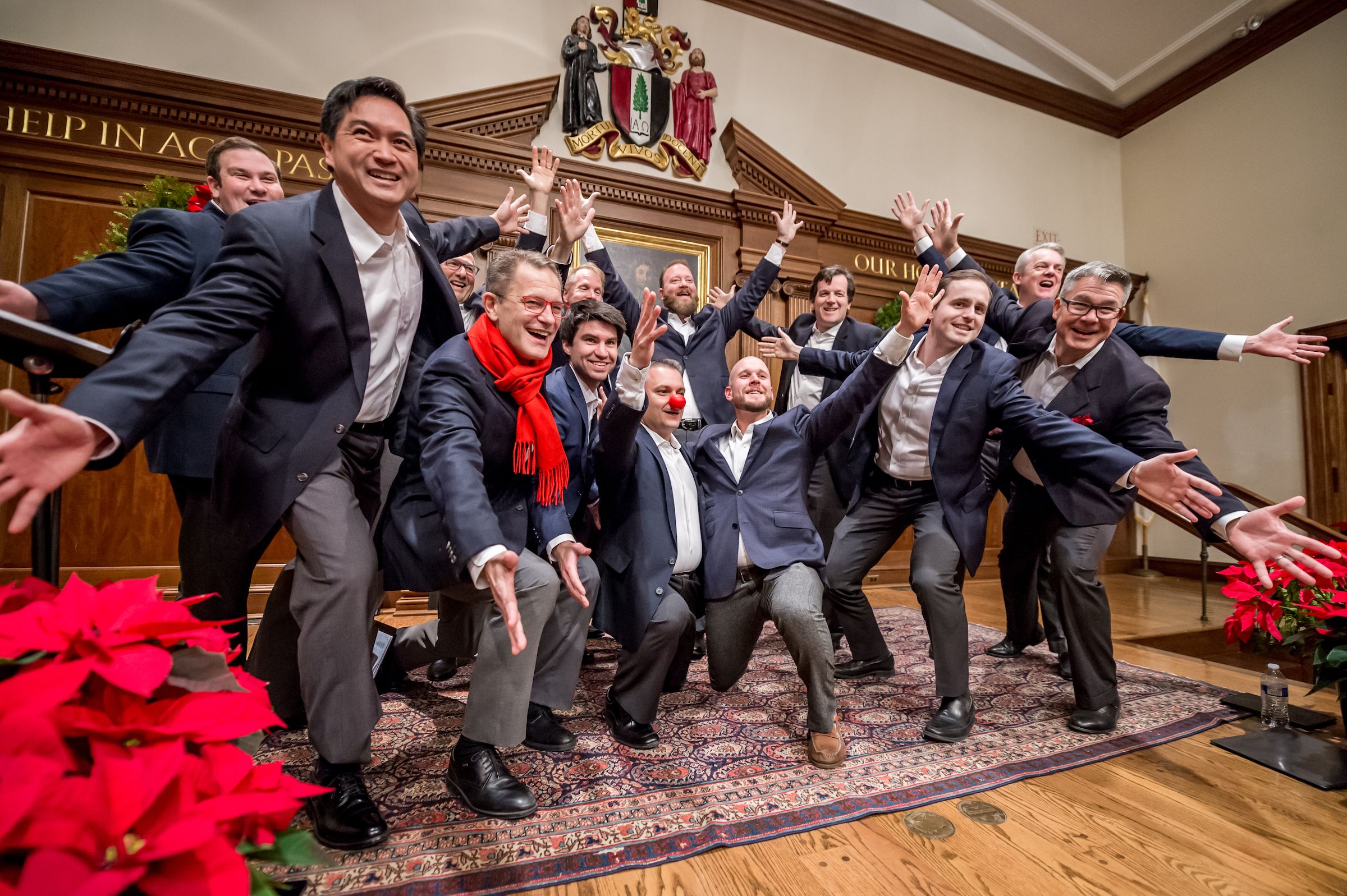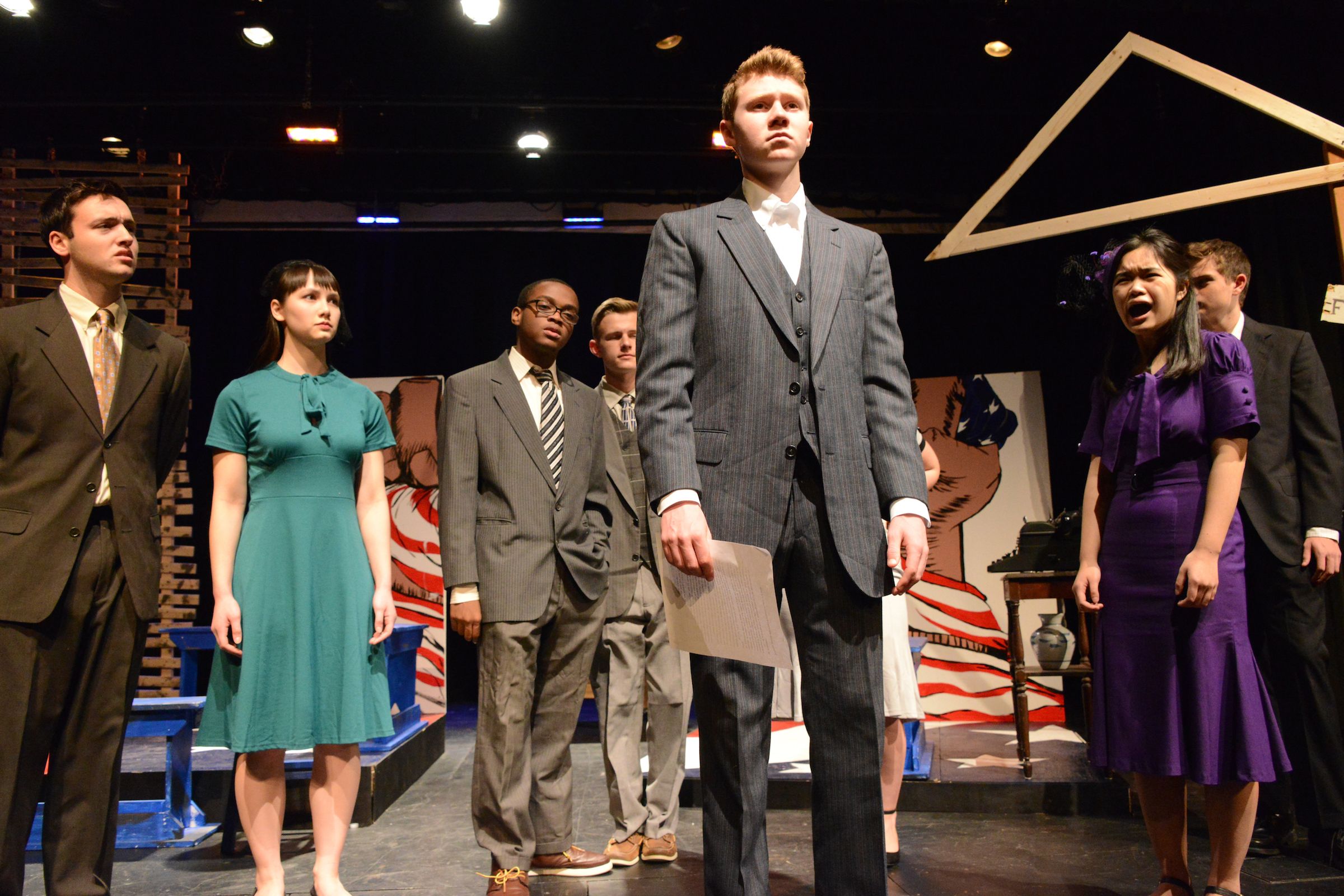On Friday, December 7, both sacred and secular songs filled a bedecked Rousmaniere Hall, kicking off a season of celebration. With nearly 300 guests in attendance, the musical event began with a holiday concert by The Sly Voxes, an all-male a cappella group featuring talented Roxbury Latin alumni and parents, and directed by Headmaster Kerry Brennan. The group’s eclectic repertoire included songs ranging from Ave Maria to Soon and Very Soon, from O Magnum Mysterium to All I Want for Christmas. The finale had The Sly Voxes donning Santa hats (and one Rudolph nose!) for a rousing performance of Here Comes Santa Claus. The concert delighted an audience that included members of the Roxbury Latin community as well as many neighbors from West Roxbury, Roslindale, and choral music-lovers from neighboring towns and around the city.
After intermission, the audience became a dazzling chorus for the Christmas portion of Handel’s Messiah, one of the world’s most enduring choral masterpieces. Rearranging themselves by voice part, the audience was directed from the stage with gusto by Mr. Opdycke and Mr. Brennan, and accompanied on the organ by Brandon Santini, music director and organist from neighboring St. Theresa Church. Soloists Lindsay Conrad (soprano), Sarah Beth Shelton (mezzo-soprano), John Bitsas (bass-baritone), and David Rivera Bozon (tenor) anchored the performance, and together with the enthusiastic audience made for a moving choral experience of Handel’s beloved creation. The Parents’ Auxiliary hosted a reception for all singers and concert-goers in the Bernstein Tea Room following the performance.
View photos from the evening here. (Photos by Adam Richins)


